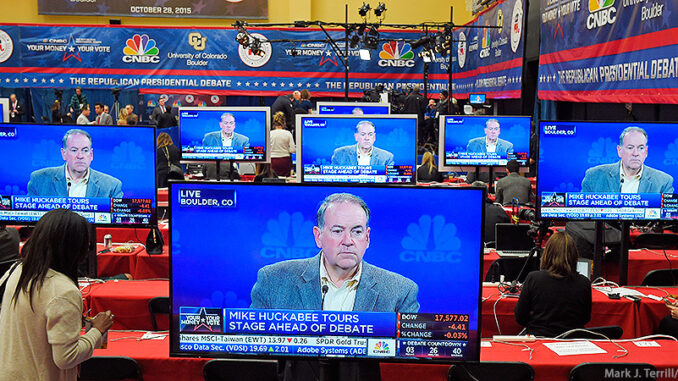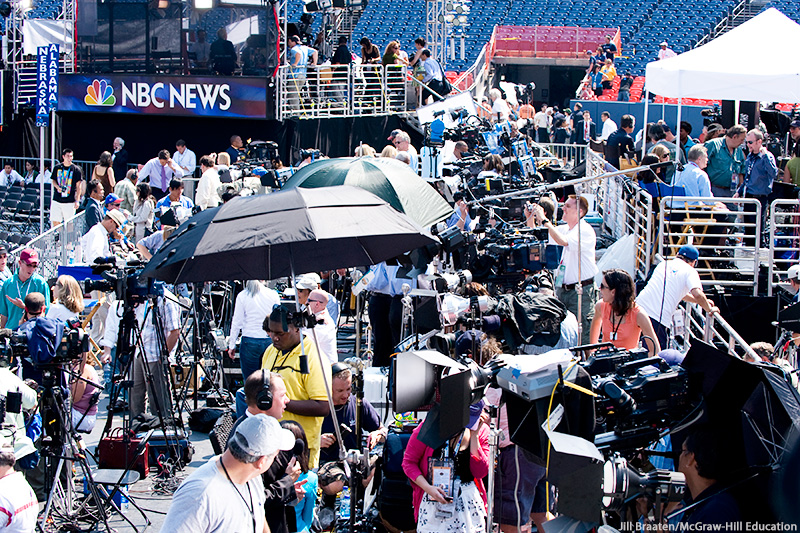

The Republican National Committee kicked off its season of debates in late summer. On August 3, there was a “forum” in New Hampshire, where eleven of the candidates answered questions in front of a live audience. Three days later was the first official, televised debate of this campaign which took place in Cleveland, Ohio. Since then, there have been two more, with eight more scheduled.
How the Debates Work
In order to participate in the debates, candidates must meet all of the requirements as established in both the U.S. Constitution and the Federal Election Commission (FEC). The Constitutional eligibility includes being a natural born citizen of the United States, at least 35 years old, and living in the U.S. for at least 14 years. If those are met, a person must first receive at least $5,000 in contributions and then file a number of forms with the FEC. The party and the media have decided for this election that, at this preliminary stage of the campaigns, in order to be eligible to participate in the official party debates shown on prime time television, a candidate must achieve a polling number of 1% or higher in the national polls.
A Brief History
The tradition of a televised, moderated candidate debate as we know it is a relatively new one in American politics. There are historical examples of famous political debates (Abraham Lincoln and Stephen Douglas’s 1858 senatorial contest or the 1948 radio broadcast of Thomas Dewey and Harold Stassen being among the most famous). While the televised contest between Richard Nixon and John F. Kennedy in 1960 was widely watched, a provision in the Communications Act of 1934 allowed candidates to effectively turn down a request to debate. Many of them did so and there was not another televised general election showdown until 1976.
It was the League of Women Voters (LWV) that was ultimately credited for the continuing tradition of the presidential debates, creating the modern format and serving as host in 1976, 1980, and 1984. In 1987, the Commission on Presidential Debates was created and has been responsible for all of the ground rules ever since. For the primary debates, the national committee of each party determines the number, as well as the host (usually a national news outlet).

How Much Do Debates Matter?
Tuning in to one or more of the debates can be a good way to become more informed as to a candidate’s beliefs or determine his or her ability to perform under pressure. But, historically, the overall shift in voter preference before and after show little evidence in big “game-changing” performances. According to several studies, new information unearthed or even guffaws by the participants rarely change the minds of voters, leading many to treat the debates as little more than entertainment.
The growing frustration has lead representatives from several of the current crop of presidential hopefuls to band together to create a list of demands to present to the upcoming hosts. These include mandatory opening and closing statements by each candidate, as well as an equal number of questions for each person on stage.
